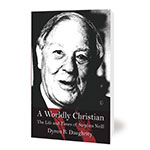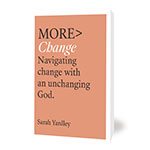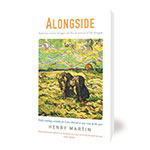Reviews – November 2021 - Reform Magazine
Desert visions
Dune
Directed by Denis Villeneuve
Certificate 12a, 155 minutes
Released 22 October
This adaptation of the phenomenally successful science fiction novel Dune boasts spaceships, political intrigue, a desert planet and giant sandworms. So, why review it in Reform? Because, in adapting Frank Herbert’s highly convoluted book, the director Denis Villeneuve and his screenwriters have pared down Herbert’s narrative to emphasise its visionary, prophetic and messianic elements.
House Atreides are put in charge of the desert planet Arrakis, which has been exploited for its spice, a drug essential to the process of interstellar space travel, by the ruthless Baron Harkonnen (Stellan Skarsgård) of House Harkonnen.
Duke Leto Atreides (Oscar Isaac) wants to win the support of the planet’s indigenous natives, the Fremen, and harness what he refers to as sand power. His beloved concubine Lady Jessica (Rebecca Ferguson) is a member of the female religious order the Bene Gesserit who have spent centuries on a breeding programme designed to produce a messiah, and they believe he will be born soon if he isn’t alive already.
The couple’s son Paul (Timothée Chalamet) is beset by visionary dreams, the meaning of which isn’t exactly clear, but they relate to the desert planet and Paul’s destiny. Villeneuve doesn’t just foreground these elements, he goes further. He structures his narrative to make it play out on the screen in an often slow and drawn-out fashion to emphasise Paul’s internal conflict, confusion and emotion.
There is a predictable violence in the story of two warring political families (and, to be fair, this is thrilling stuff) yet ultimately that’s not what impresses. The same is true of the religious sisterhood (although the concept remains compelling). What’s fascinating is Paul’s internal conversation about what he’s supposed to be doing with his life, especially as it dawns on him that he might, possibly, be the natives’ long-awaited messiah.
Readers of the book will know the above, but they won’t be prepared for the fact that watching this film adaptation feels like something akin to a religious experience. Few Hollywood science fiction adventure action movies come anywhere near that. This one, though, has scenes which appear to be metaphors for death, rebirth and an attendant new purpose.
Jeremy Clarke is a film critic. His work is available at jeremycprocessing.com
___
Mission failings
A Worldly Christian: The life and times of Stephen Neill
Dyron B Daughrity
The Lutterworth Press
£25
ISBN 978 0 7188 9585 3
Before reading this biography I knew Stephen Neill as an author, especially of the Penguin textbook A History of Christian Missions, which is almost 60 years old and still useful. He was also a hugely influential figure in world ecumenism and in the Anglican Church. He emerges from this biography as a deeply troubled and abusive man.
A very gifted classical scholar, Neill went to India as a missionary in 1924, aged 24, becoming Bishop of Tinnevelly at 39. He took a leading role in the creation of the Church of South India, uniting Anglican, Methodist and Reformed Churches in 1947. He was involved with the World Council of Churches during its inauguration in 1948. In his 50s he focused on writing, with a prodigious output of theology and church history. In later years he worked as an academic in Hamburg and Nairobi, and died at 84 leaving a three-volume history of Christianity in India unfinished.
The pivotal moment of Neill’s life, though, was being recalled from India and losing his bishopric in 1944. The details were kept secret, but earlier sources talk of Neill’s bouts of debilitating depression, insomnia, other medical problems and ‘mental aberration’. Daughrity reveals that Neill habitually imposed non-consensual sado-masochistic practices over the young men under his charge. Aware that this was unacceptable, he found himself unable to stop. This led to his removal but not – as investigations into institutional abuse have so often found – to effective steps to stop him molesting people.
A picture emerges of Neill as a gay man forbidden regular relationships, a sufferer of devastating mental ill health, a pastor who damaged those in his care, a driven and difficult leader, and an acclaimed scholar. Daughrity does not reduce him to simply either a perpetrator of abuse or a victim of repression though he shows elements of both. Rather, he holds in balance his achievements and his failings, fully empathising with the men sometimes left wounded by their encounters, while also empathising with the wounded man himself.
Stephen Tomkins is Editor of Reform
___
Season’s briefings
Christmas: Tradition, truth and total baubles
Nick Page
Hodder and Stoughton
£9.99
ISBN 978 1 529 33408 1
Nick Page is well known as a speaker at Spring Harvest and other Christian events as well as author of the ‘Nearly Infallible’ series of books on Church history. His style might be described as mildly laddish with a serious, yet gently evangelical, intent. This book, in which he examines the traditions, denigrations and too often buried truths surrounding the nativity stories and other aspects of Christmas, allows him wide scope in which to use his skills.
Not everything he writes about will be news to most readers – we know that many nativity tableaux are based rather creatively on the accounts in Matthew and Luke and contain elements (and animals) which the Gospel writers failed to mention. But as he takes a compendious trawl through claims and counter claims about the ‘truths’ of Christmas as we encounter them, he makes a good job of sifting affable make-believe, scurrilous propaganda and life-affirming worth in order to establish what is useful, fun, unhelpful or, in his euphemistic judgement, ‘utter baubles’!
By the end of the book the reader is left reassured that not everything that is fun about Christmas was actually pinched from druids or pre-Christian pagan festivals. The reader is also well informed about the origins of Advent wreaths and nine lessons and carols and so, so much more. We learn that Santa Claus was originally dressed in green, was not invented by Coca Cola, and is commemorated by a statue in Demre, Turkey, in honour of Nickoloas, one-time Bishop of Myra.
Nick Page’s book is acceptably scholarly. More importantly, it is great fun, a good resource for anyone who is curious about the paraphernalia of Christmas, and it is faithful to a quiet, underlying agenda of presenting what really lies at the heart of Christmas. Christmas is, as he quotes from G K Chesterton:
‘… the place where God is homeless
And all men are at home.’
Ian Fosten is Reviews Editor for Reform
___
A great pep talk
More > Change: Navigating change with an unchanging God
Sarah Yardley
SPCK
£7.99
ISBN 978-0-28108458-6
SPCK has launched a series of small books under the title More > … The series seeks to relate real life experience to Bible wisdom, its volumes designed to fit snugly in pocket or bag, and is aimed at ‘young adults, students and professionals on the go’. Even though I am many years past qualifying for any of those categories, I found Sarah Yardley’s More> Change surprisingly inspirational.
Yardley, a Californian who leads a beachside church in Cornwall, comes from a Bible-soaked, conservative church background. In the book she respects her upbringing, but with engaging honesty and perception invites the reader to share her journey through significant life changes which have both deepened and broadened her faith and understanding. She draws intelligently on biblical sources as well as an unexpectedly wide range of writers.
In reflecting on the changes that have shaped her own life, Yardley offers clear guidance to readers about understanding change not as something to be feared and avoided or endured, but as an inevitable and creative part of life. She points out that change is a broad thread which runs through the Bible from start to finish but, crucially, it is wound around the changeless God whom we know in Jesus.
I opened the book expecting to encounter a simplistic how-to-do-it raft of platitudes – and got my ears boxed! On the contrary, Yardley challenged my resignation to the changes that age brings, reminded me that Hillsong repetitiveness or progressive issue-chasing are not the only, nor necessarily best, ways of expressing a living faith, and gave my own flagging faith a real boost. Sarah Yardley is too focussed on living the Kingdom effectively to fit easily into any particular category – for that reason and much more, she and this little book are well worth engaging with, whatever times of change we are currently experiencing in life.
Ian Fosten is Reviews Editor for Reform
___
Struggles with faith
Alongside: Reflections on Jesus’ struggles and how he meets us in our struggles
Henry Martin
Darton, Longman and Todd
£12.99
ISBN 978 0 232 53464 1
Henry Martin is a former prison chaplain and wrote Alongside as his reply to the member of the prison discussion group who claimed that, because he was the Son of God, Jesus could never have had any struggles: ‘Struggle is not a block to life; rather it is a necessity.’
The book offers six themes with material for each weekday and also the weekend, followed by a set of questions. The book can be used as a six-week read or for Advent or Lent. Each day’s materials comprise a reflection on how the particular struggle was seen in the life and ministry of Jesus, how Jesus meets us in our own experience of the same struggle, and concludes with a prayer on the theme.
Martin concludes: ‘Jesus is there in front of us as a guiding light and a wonderful example. But he’s also alongside us. He might not have gone through the whole gamut of our own individual struggles but the point is he did struggle. His struggles were real, visceral and their outcome was not guaranteed. This is good news and means that we have more in common with Jesus than we might have supposed. We share these truths with him; we both know the taste of struggle, the burn, the tugging of internal fibres, as well as the cloaking power of a lie to all but completely obfuscate God’s will.’
Alongside manages to combine simplicity with depth, encouragement with challenge. It is punctuated by great insights, down-to-earth application, humour and refreshing honesty. He admits struggling to stay awake in a service and to feeling personally torn by the contrast between his own freedoms and privileges as a chaplain and the absence of such for the prisoners to whom he ministered. Dissenters will applaud his caution about ‘buddying up to the establishment’ at the risk of ‘becoming the state’s poodle’.
I particularly liked the prayers that conclude each day’s material. The book is worth having for the prayers alone, and any reader would benefit from pondering the questions posed.
Geoffrey Clarke is Moderator of East Midlands Synod


















Submit a Comment